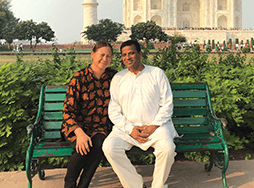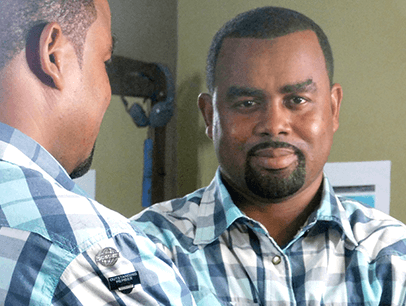
I can honestly say public speaking is the single most important skill I have developed through the years. The stereotypical engineer is into math and science. The stereotypical engineer focuses on the analytical side of a problem. Stereotypical engineers want to be left alone with their calculations. So it is no surprise that the culture of public speaking within the engineering world is weak. I’m not ashamed to admit that I accidentally stumbled into a love for public speaking while searching for an undergraduate academic class that promised an easy A.
As all engineers know, if you are taking a non-technical elective, you want something relatively easy to juxtapose with the brutal engineering classes already on your plate. A friend recommended a public speaking class. I’m not a quiet person and would certainly be branded as extroverted, so public speaking was not something I worried about. In the end, the class was indeed an easy A. However, what I gained, unexpectedly, is a life skill that has helped advance my career. Looking back at close to two decades in the engineering field, I’m glad public speaking has been part of my repertoire.
When it comes to success in the engineering world, nobody would argue that you need to have solid technical skills. I’m certainly not saying you should forget about them and start developing your public speaking skills in their place. However, public speaking is the specific capability that has given me a disproportionate ability to have career mobility.
I can already hear the pushback from the engineering crowd:
Seriously? Is public speaking really useful for engineers?
But I don’t plan to speak to groups.
I work with numbers and calculations, not words.
I’m not interested in engineering sales positions.
In my mind, the problem lies in how engineers view public speaking. They may envision an overly energetic keynoter getting a small stadium of audience members all pumped up. They may think about church pastors or perhaps a stand-up comedian in a room full of people waiting to be entertained. However, that’s a very narrow view of public speaking. There are many examples of the need to communicate well throughout one’s entire career, starting with those initial job interviews.
In fact, I remember my first engineering interview and how I failed spectacularly. The interviewer asked me a question about design. I gave a garbled and rambling answer, trying to figure out what he wanted. Instead of collecting my thoughts and answering clearly, my response completely missed the mark. I immediately saw the confused look on his face. Needless to say, I never heard from that guy again.
Once you’re hired and in the thick of the engineering world, the list of public speaking situations continues:
- Promoting your company’s technology to a handful of investors? That’s public speaking.
- Representing your firm to potential employees at a job fair? That’s also public speaking.
- Discussing your team’s latest project at a staff meeting or voicing your opinion on a project’s direction? Once again, public speaking.
So even if you never speak to large groups, you can see how speaking with confidence and clarity is a worthwhile asset.
To put it bluntly, if you don’t have the ability to push your ideas forward and gain buy-in from others, then you are setting yourself up to be a step behind. Being able to publicly convey your ideas is one of the most powerful ways to gain career mobility and control of your destiny.
As one moves through an engineering career, there are often ways to set up your work to avoid assignments in certain disciplines that are not to your liking. In fact, I openly admit I haven’t touched chemistry or calculus since I took them in my undergraduate studies.
However, for most of us, it’s difficult to completely avoid public speaking throughout our work lives.
This is why I promote the value of proficient public speaking to all engineers, and particularly to the younger engineers I mentor. This prepares them early in the professional game to master an often-undervalued expertise that’s crucial for a long and successful career.
Sol Rosenbaum was the 2021–2022 Vice President Education for Modi’in Toastmasters in Modi’in-Maccabim-Re’ut, Israel. He is the owner and principal of SR Engineering & Consulting and founded www.TheEngineeringMentor.com to mentor young engineers as a way of “paying forward” the guidance he received over the years.
Related Articles

Member Moment
Fulbright Scholar Electrifies Audiences

Leadership
Meet Microsoft’s Sophia Velastegui

Your Turn



 Previous
Previous

 Previous Article
Previous Article